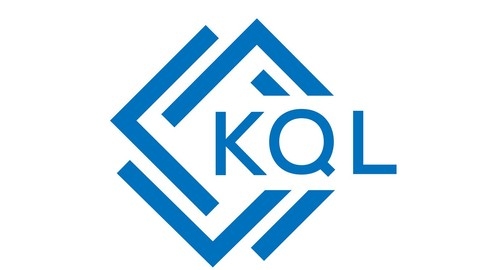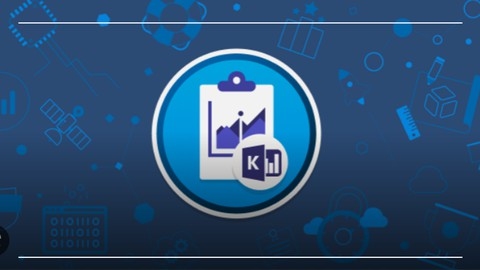Kusto Query Language (KQL) is a powerful query language used to analyze large datasets in Azure Data Explorer, Microsoft Sentinel, and other Azure services.
Mastering KQL enables you to explore, analyze, and visualize data effectively, unlocking valuable insights for various applications like security monitoring, log analytics, and business intelligence.
By learning KQL, you’ll gain the skills to query and manipulate data efficiently, create interactive dashboards, and derive meaningful conclusions from complex datasets.
Finding a high-quality KQL course on Udemy that provides a comprehensive and practical learning experience can be challenging with the abundance of options available.
You’re searching for a course that not only covers the fundamentals but also delves into advanced concepts and provides hands-on exercises to solidify your understanding.
Based on our research and analysis, we highly recommend Kusto Query Language (KQL) - Part 2 as the best overall KQL course on Udemy.
This course offers a deep dive into KQL, starting with the basics and progressing to advanced topics like time series analysis, machine learning integration, and geospatial analysis.
It also covers integration with tools like Excel and Power BI, ensuring you gain a well-rounded understanding of KQL’s capabilities.
While Kusto Query Language (KQL) - Part 2 is our top recommendation, we understand that you might have specific learning preferences or goals.
That’s why we’ve curated a list of other excellent KQL courses on Udemy, catering to various skill levels and areas of focus.
Continue reading to explore these options and discover the perfect KQL course to embark on your data analysis journey.
Kusto Query Language (KQL) - Part 2
This course starts with the basics, guiding you through using Kusto Explorer to connect to Azure Data Explorer and build KQL queries.
You will then learn how to navigate the Azure Data Explorer web UI, understand its architecture, and create dynamic dashboards to visualize data.
You will discover how to bring data into Azure Data Explorer and manage it using KQL management commands.
You will delve into time series analysis, learning how to use the “make-series” operator, calculate moving averages, and perform trend analysis using linear regression and the “series_decompose” function.
You will learn about anomaly detection, forecasting, and other advanced time series analysis techniques.
The course then introduces you to machine learning within KQL, teaching you how to perform basket analysis, clustering, and data reduction.
You will also learn how to perform geospatial analysis using KQL.
The course doesn’t neglect integration with other tools.
You will learn how to access Azure Data Explorer from Microsoft Excel and Power BI to enhance your data analysis workflows.
You will master advanced KQL operators like “row_rank”, “row_cumsum”, “pivot”, “sequence_detect”, “narrow”, and “sliding_window”, enabling you to perform complex data manipulations.
You will also be introduced to Microsoft Fabric Real-Time Intelligence and gain insights into the latest updates and new features in Azure Data Explorer and KQL, including those from Build 2023, ensuring your skills remain current.
KQL for Security Analysts
This course will teach you how to use the Kusto Query Language (KQL) to analyze data and become a better security analyst.
You start with the KQL Free Lab, a safe space to practice writing KQL queries.
You then learn how to structure KQL queries, the foundation for everything else in the course.
You will learn about essential KQL operators such as the “Where” operator for filtering data and the “Pipe” operator for chaining commands.
You will explore advanced techniques, like using the “Project” operator and the “Extend” operator.
You also learn how to analyze Windows login data, a practical application of your new KQL skills.
You will use operators such as “Summarize”, “Sort”, “Search”, “Distinct”, “Take”, and “Render” to manipulate and visualize data.
Hands On: Kusto Query Language (KQL)
This KQL course takes you from beginner to expert.
You will start with hands-on demos learning the basic structure of KQL, including how to use the pipe operator to connect different parts of a query.
You will then explore a variety of KQL operators like “search,” “where,” and “distinct,” which will help you find and filter the specific data you need.
You will also learn how to summarize, sort, and aggregate your data for analysis.
The course then progresses to more advanced KQL topics like using the “join” operator to combine data from multiple sources.
You learn how to create custom log data and use Kusto Detective to troubleshoot your queries.
The course even delves into conditional statements, string manipulation, and advanced functions like “arg_max” and “arg_min”.
Through the Kusto Detective, KQL Lieutenant, and KQL Ninja learning framework, you develop a strong understanding of KQL and build expertise in this powerful query language.
Hands-on labs give you practical experience using KQL to analyze data from various sources, including security logs, website activity, and financial data.
You will finish the course with the skills necessary to navigate KQL’s vast capabilities.



